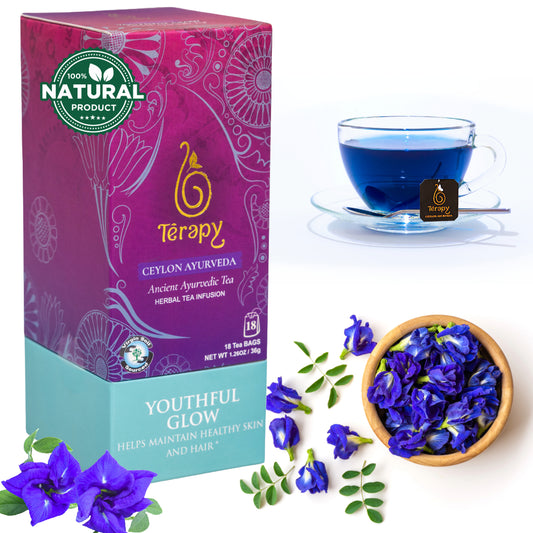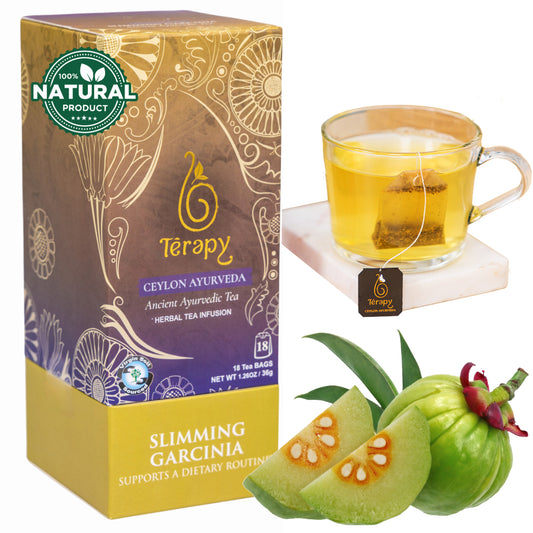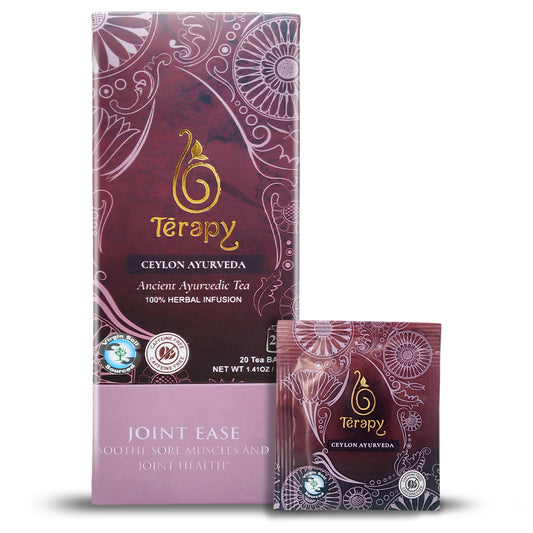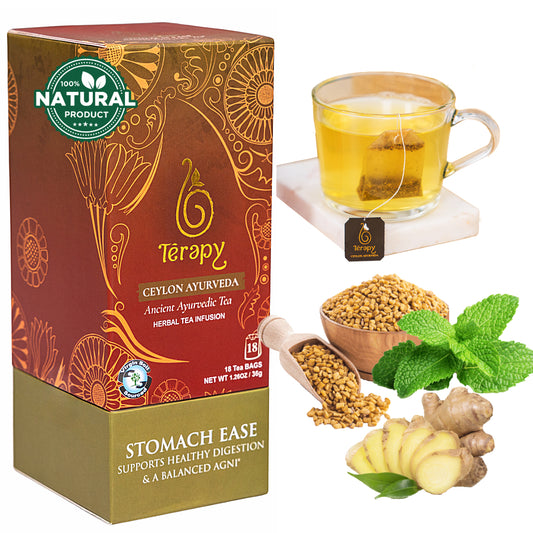Turmeric: A Golden Spice for Health and Healing

Turmeric, scientifically known as Curcuma longa, is a bright yellow-orange spice that has been used for centuries, not only as a culinary delight but also as a powerful healing agent in traditional medicine systems. Native to Southeast Asia, turmeric has found its place in many cultures for its potent medicinal properties. In Ayurveda, the ancient system of Indian medicine, turmeric is considered one of the most valuable herbs for its numerous therapeutic benefits. Its primary bioactive compound, curcumin, is responsible for much of its health-promoting properties. This article explores the health benefits of turmeric and its usage in Ayurveda, offering insights into how this golden spice can enhance well-being.
Health Benefits of Turmeric

Turmeric is more than just a kitchen staple—its numerous health benefits make it a powerful medicinal herb with a wide range of uses. Here are some of the key benefits of turmeric:
1. Anti-Inflammatory Properties
One of the most well-known benefits of turmeric is its potent anti-inflammatory effect. Chronic inflammation is believed to be a root cause of many health conditions, such as arthritis, heart disease, and even certain cancers. Curcumin, the active compound in turmeric, has been shown to significantly reduce inflammation in the body, helping to alleviate pain and swelling associated with inflammatory diseases like rheumatoid arthritis, osteoarthritis, and inflammatory bowel disease (IBD).
2. Antioxidant-Rich
Turmeric is a rich source of antioxidants, which help neutralize free radicals in the body. These harmful molecules contribute to oxidative stress, which is linked to aging and a variety of diseases, including cancer, heart disease, and neurodegenerative conditions like Alzheimer's. By combatting oxidative stress, turmeric helps protect cells from damage and promotes overall health.
3. Supports Digestive Health
In Ayurveda, turmeric is regarded as a digestive tonic. It supports the digestive fire, known as Agni, which is essential for proper digestion and metabolism. Turmeric helps stimulate bile production in the liver, which aids in the digestion of fats and promotes a healthy gallbladder. It can also alleviate symptoms of indigestion, bloating, and gas, and is used to soothe the lining of the digestive tract, making it beneficial for conditions like irritable bowel syndrome (IBS) and ulcerative colitis.
4. Promotes Heart Health
Turmeric supports cardiovascular health by improving circulation and reducing inflammation. Studies have shown that curcumin helps lower levels of LDL (bad) cholesterol, reduces the risk of blood clot formation, and helps prevent the buildup of plaque in the arteries, which can lead to heart disease. Additionally, its antioxidant properties protect the heart from oxidative damage and support healthy blood pressure levels.
5. Enhances Brain Function
Curcumin in turmeric has neuroprotective properties that help maintain brain health. It increases the levels of brain-derived neurotrophic factor (BDNF), a protein that plays a key role in brain function, memory, and cognitive health. Low BDNF levels have been linked to neurological diseases such as depression, Alzheimer’s, and Parkinson's disease. Turmeric’s ability to boost BDNF can help improve cognitive function and protect the brain from degenerative diseases.
6. Boosts Immune Function
Turmeric has immune-boosting properties that help the body fight infections. Its antibacterial, antiviral, and antifungal properties make it an effective herb for preventing and treating common ailments such as colds, coughs, and respiratory infections. Additionally, turmeric helps modulate the immune system, ensuring a balanced immune response to both external pathogens and internal imbalances.
7. Skin Health
Turmeric is widely used in skincare due to its anti-inflammatory, antimicrobial, and antioxidant properties. It helps improve skin health by reducing acne, dark spots, and signs of aging. Turmeric is often used in face masks and topical ointments to soothe irritated skin, reduce redness, and even out skin tone. Its healing properties also make it useful in treating skin conditions such as eczema, psoriasis, and dermatitis.
Turmeric in Ayurveda

In Ayurveda, turmeric is known as Haridra and is highly valued for its purifying, detoxifying, and healing properties. It is considered a tridoshic herb, meaning it can balance all three doshas—Vata, Pitta, and Kapha—when used appropriately. Turmeric is primarily used to balance Pitta and Kapha doshas due to its warming, anti-inflammatory, and cleansing qualities. Its therapeutic applications in Ayurveda are wide-ranging, from promoting healthy digestion to purifying the blood.
Turmeric’s Role in Ayurvedic Medicine
In Ayurveda, turmeric is used in various forms, including powders, pastes, oils, and teas. It is often combined with other herbs and spices to enhance its effectiveness. Here are some of the key ways turmeric is used in Ayurveda:
1. Digestive Health
Turmeric is frequently used to improve digestion in Ayurveda. It helps enhance Agni (digestive fire), which is crucial for the proper assimilation of food and nutrients. It is often recommended to take turmeric with warm water or ghee (clarified butter) before meals to stimulate appetite and digestion. This practice helps alleviate indigestion, bloating, and gas.
2. Detoxification
Turmeric is regarded as a powerful detoxifying agent in Ayurveda. It helps cleanse the liver and blood, eliminating toxins (Ama) from the body. It is used in various detoxification therapies, such as Panchakarma, to purify the body and restore balance. Turmeric’s detoxifying properties are also beneficial for supporting the skin, as it promotes a healthy complexion by removing impurities from the blood.
3. Anti-Inflammatory and Pain Relief
In Ayurvedic treatments, turmeric is often used to reduce inflammation and pain, especially for conditions like arthritis, joint pain, and muscle soreness. It is used both internally and externally for its soothing and healing properties. A common Ayurvedic practice involves applying a paste of turmeric and other herbs to affected areas for local relief from pain and swelling.
4. Immune Support
Turmeric is considered a natural immune booster in Ayurveda. It is used to strengthen the body’s defenses against infections and diseases. Turmeric is often incorporated into Ayurvedic formulations, such as Chyawanprash (an immunity-boosting herbal tonic) and various herbal teas, to enhance immunity and promote overall health.
5. Mental Clarity and Spiritual Healing
In Ayurveda, turmeric is believed to enhance mental clarity and promote a calm, focused mind. It is used in meditation and spiritual practices to improve concentration and clear mental fog. Its purifying properties also help in balancing the emotions and calming an overactive mind, making it an important herb for emotional and spiritual well-being.
How to Digest Turmeric

Turmeric can be consumed in various forms to harness its health benefits. Here are some common ways to incorporate turmeric into your diet and daily routine:
1. Turmeric Milk (Golden Milk)
One of the most popular and traditional ways to consume turmeric is by making turmeric milk, also known as golden milk. To prepare, heat a cup of milk (or a non-dairy alternative like almond or coconut milk) and add 1 teaspoon of turmeric powder, a pinch of black pepper (to enhance curcumin absorption), and a small amount of honey or ghee for added benefits. Drinking golden milk before bed helps promote relaxation, reduce inflammation, and support overall health.
2. Turmeric Tea
Turmeric tea is another great way to incorporate this spice into your daily routine. To make turmeric tea, steep a teaspoon of turmeric powder or fresh turmeric root in hot water for 5-10 minutes. You can add lemon, honey, and ginger for added flavor and benefits. This tea is particularly effective for soothing digestive issues, reducing inflammation, and supporting detoxification.
3. Turmeric in Cooking
Turmeric is commonly used in cooking, especially in curries, soups, and stews. It adds both flavor and color to dishes while providing its health benefits. To maximize the absorption of curcumin, it is helpful to cook turmeric with a small amount of fat, such as ghee or coconut oil, and a pinch of black pepper. This combination helps the body better absorb the active compounds in turmeric.
4. Turmeric Supplements
For those who prefer a more convenient option, turmeric supplements in the form of capsules or tablets are widely available. These supplements provide a concentrated dose of curcumin and are often combined with black pepper extract (piperine) to enhance absorption. It is important to follow the recommended dosage on the product label and consult with a healthcare provider before starting any supplement regimen.
5. Turmeric Paste for Skin Care
For external use, turmeric paste can be applied to the skin to reduce inflammation and promote healing. Mix turmeric powder with a small amount of water or honey to form a thick paste. Apply the paste to acne, scars, or other skin irritations, and leave it on for about 10-15 minutes before rinsing off. This can help reduce redness, blemishes, and signs of aging.
Conclusion
Turmeric, with its powerful anti-inflammatory, antioxidant, and detoxifying properties, is truly a golden herb for health. In Ayurveda, it has been revered for centuries for its ability to balance the body and mind. Whether used to promote digestive health, support the immune system, reduce inflammation, or enhance skin health, turmeric offers a wide array of benefits. By incorporating turmeric into your daily routine, you can tap into its healing potential and enjoy improved health and well-being. As always, it's important to consult with a healthcare provider before using turmeric for medicinal purposes, especially if you have underlying health conditions or are taking medications.
Featured collection
-

Youthful Glow Tea
SaleYouthful Glow Tea
Regular price From $17.99Regular priceUnit price / per$19.99Sale price From $17.99Sale -

Slimming Garcinia Tea
SaleSlimming Garcinia Tea
Regular price From $17.99Regular priceUnit price / per$19.99Sale price From $17.99Sale -

Joint Ease Tea
SaleJoint Ease Tea
Regular price From $14.99Regular priceUnit price / per$17.99Sale price From $14.99Sale -

Stomach Ease Tea
SaleStomach Ease Tea
Regular price From $15.99Regular priceUnit price / per$17.99Sale price From $15.99Sale





